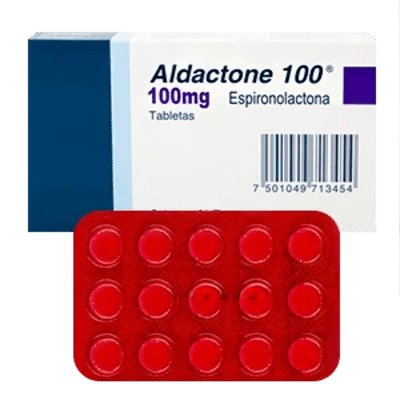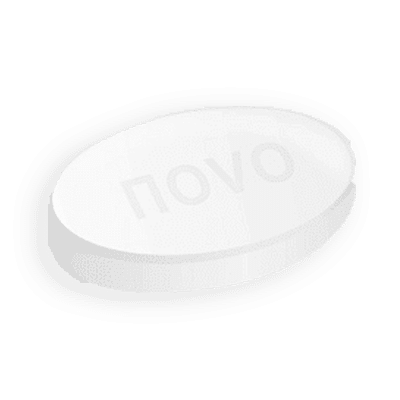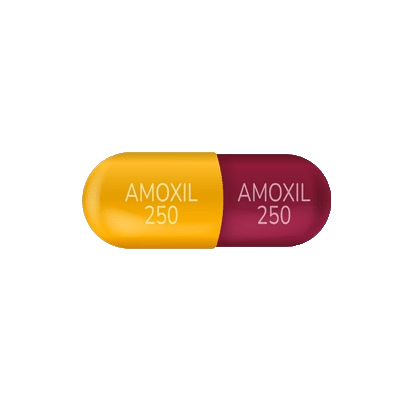I have used Aldactone to combat high blood pressure and I am pleased with the results. The drug helps to maintain blood pressure at the desired level and I have not noticed any serious side effects other than a slight dizziness at the beginning of the treatment.

Aldactone
- Discreet shipping
- Pay with crypto
- Quality products
- BTC,
- ETH,
- USDT,
- USDC
What is it?
Aldactone is a drug that has the unique ability to conserve potassium and act as an aldosterone antagonist. It is used in medical practice to reduce high blood pressure and remove excess fluid from the body in conditions such as congestive heart failure, cirrhosis of the liver, and kidney disease. This drug is highly valued for its mild diuretic action, which helps remove sodium ions while reducing the excretion of potassium and magnesium from the body. It also has some hypotensive action, making it useful for patients suffering from hypertension.
Frequently asked questions
Composition
The main active ingredient of Aldactone is spironolactone. This substance works as an aldosterone antagonist, which helps prevent sodium and water retention in the body. However, Aldactone also includes other components that make it effective and safe to use.
- Spironolactone is the main active ingredient that provides the main therapeutic effect of the drug.
- Lactose is a filler that is used to create the desired consistency of tablets.
- Corn starch is often used in pharmaceuticals to improve the texture and stability of the drug.
- Aerosil is used to improve the quality of tablets and increase their stability under various storage conditions.
These components together contribute to the implementation of the therapeutic effects of Aldactone, helping to effectively cope with the symptoms of the diseases for which it is prescribed.
How to use?
Correct use of Aldactone is critical to achieve maximum therapeutic effect. The usual adult dose for hypertension and edema syndrome is 50-100 mg, divided into one or two doses per day. If necessary, the dosage can be gradually increased to 200 mg per day.
- Take the tablet after food to minimize possible gastrointestinal irritation.
- It is preferable to take the dose in the evening, as this promotes better absorption and reduces the risk of side effects.
- Follow your doctors instructions when increasing the dose or changing the regimen, especially when treating specific conditions such as chronic heart failure or cirrhosis of the liver.
It is very important to maintain regular intake and not to stop using the drug without consulting your doctor, even if you feel better, because this may affect the effectiveness of the treatment.
How does it work?
Aldactone acts in the distal part of the nephron, binding competitively to aldosterone receptors. This leads to an increase in the excretion of sodium and water, which helps reduce edema and lower blood pressure. However, unlike other diuretics, Aldactone reduces the excretion of potassium and magnesium, which helps prevent side effects associated with their deficiency.
An interesting property of Aldactone is its ability to have a hypotensive effect, which usually begins 2-3 weeks after the start of therapy. Thus, patients can observe a gradual improvement in their condition when blood pressure is normalized during long-term use of the drug. Another feature of the drug is that its effects persist for another 2-3 days after stopping the drug, which provides a smooth and long-lasting effect, which is especially important in chronic diseases.
Indications
The medical indications for Aldactone are quite varied, it is effective in a wide range of diseases associated with fluid retention and high blood pressure. This makes it a valuable tool in the arsenal of the treating physician.
- Arterial hypertension
- Congestive heart failure
- Cirrhosis of the liver with ascites and edema
- Nephrotic syndrome
- Hypokalemia and other conditions requiring monitoring of potassium levels in the body
These diseases are only part of the list of indications for which Aldactone can be prescribed. However, it is important to remember to consult a doctor before starting to take the drug, to correctly determine the indications and dosage.
Contraindications
Like any medicine, Aldactone has its own contraindications. This means that the drug is not recommended for use in certain conditions of the body, as this may lead to adverse effects.
- Hypersensitivity to spironolactone or other components of the drug
- Addisons disease
- Hyperkalemia - increased levels of potassium in the blood
- Renal failure
- Diabetic nephropathy
- Pregnancy and breastfeeding
Each of these factors can significantly affect the safety of using Aldactone, so before starting treatment, it is necessary to carefully assess the patients health and consult a doctor.
Side effects
Like any medicine, Aldactone can cause side effects. These can vary depending on the dosage, duration of use and individual patient factors.
- Headache
- Diarrhea
- Nausea and vomiting
- Hyperkalemia - too much potassium in the blood
- Menstrual irregularities
- Breast enlargement, which is reversible and usually goes away after stopping the drug
If you notice any of these symptoms or other unusual reactions, it is important to contact your doctor immediately. They will be able to adjust your dosage or suggest alternative treatments.
Aldactone Reviews and Experiences
This drug was prescribed to me to treat swelling due to liver cirrhosis, and after a few days I noticed improvements. The swelling has noticeably decreased, and I feel much better. The good news is that there are practically no side effects.
I have been taking Aldactone for several months now as prescribed by my doctor for heart failure. It is amazing how well it helps with swelling. Of course, I had to get used to frequent visits to the toilet, but for such a result it is worth it.



